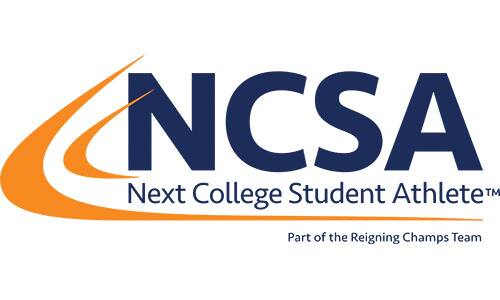
Editor's Note: This is an edited version of an NCSA blog. Visit NCSA's blog page for more recruiting information.
As the COVID-19 situation continues to evolve, impacts are being seen on college recruiting.
The NCAA has made numerous announcements that impact current college athletes and recruits. These announcements have left us questioning how else the recruiting process will be affected.
- NCAA cancels all winter and spring sports in March
- NCAA bans in-person recruiting until at least Sept. 30
- NCAA grants extra year of eligibility to seniors in spring sports
Fortunately, much of the recruiting process already takes place digitally. Across all grad years and sports, it’s more important than ever for student-athletes to maximize their online presence to be proactive in starting recruiting conversations. Of course, some recruits and sports will be more impacted than others, so we’ve broken things down below to explain how your recruiting journey may change based on recent NCAA announcements.
How will this impact athletic scholarships?
With many college seniors being granted an extra year of eligibility, one of the first questions is what happens to athletes who have already signed a scholarship? Coaches grant scholarships based on the expectation they lose their seniors. If seniors are coming back, will they be eligible for a scholarship? And what happens to the committed recruits who have already accepted a scholarship? All we know is that the NCAA is aware of this concern and will provide guidance in the future.
High school class of 2020
Many Division I and Division II programs were done or almost done recruiting for the class of 2020, but the NCAA’s eligibility relief plan is going to change the recruiting landscape moving forward. Coaches who were planning on losing their seniors might have those seniors on the team next year. High school seniors still looking to get recruited may need to expand their search to include more schools and different division levels. Recruits should also step up their digital recruiting efforts by reaching out to coaches online and by phone to discuss roster availability.
2020 seniors who have already committed should make sure to communicate with the coach regularly and not be afraid to ask how the coach anticipates that eligibility relief will impact incoming recruits’ rookie year.
High school class of 2021
For the class of 2021, this is prime time for recruiting. With official and unofficial visits postponed and many recruiting tournaments/showcases postponed or canceled, coaches have moved online. College coaches may not be able to talk in-person, but they are available to take phone calls and answer emails, texts and DMs. Coaches are online searching recruiting networks to discover and evaluate recruits they are no longer able to watch compete in-person. Student-athletes can stay on top of their recruiting by keeping a strong digital presence and staying proactive.
Guide for contacting college coaches
How to make a highlight video
High school class of 2022 & 2023
The biggest impact to these classes will be the postponement or cancellation of tournaments, showcases and camps. Remember, for most sports, college coaches aren’t able to contact recruits until after June 15 of their sophomore year, which means most 2022 grads can now contact coaches via phone, email and text/social messages. For the time being, underclassman should continue to focus their efforts on creating a recruiting profile and highlight video, building a list of prospective schools and sending introductory emails to college coaches. Video is also going to play a critical role in the recruiting process for this recruiting season.
College spring sports, including men's volleyball and women's beach volleyball
While it’s uncertain how many athletes will take advantage of the NCAA eligibility relief, it is safe to assume that coaches’ recruiting needs for the 2021 class will be changing. We’ll have a better understanding of the true impact eligibility relief will have on 2021 recruits once the NCAA addresses the topic of scholarship money, roster spots and other challenges teams will face with eligibility relief.
College fall sports, including women's volleyball
For now, the recruiting process for student-athletes pursuing a roster spot on a fall sports team is only impacted by the NCAA’s new “dead period” that prohibits in-person recruiting through at least Sept. 30. Recruits are still able to communicate with coaches via phone, email, text and social media.
For more information about NCSA and recruiting, visit NCSAsports.org.
